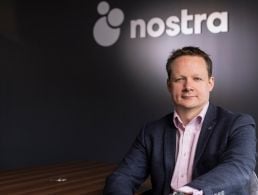During Fintech Week on Siliconrepublic.com, we’ve been looking at careers and recruitment practices in fintech.
We’ve looked at job opportunities in the fintech sector, fintech companies who are currently hiring, and how to make yourself stand out to a fintech employer.
For this final Fintech Week article, we’re taking a look at what you can do to launch your fintech career, whether as a student, as a graduate or as someone looking to change jobs.
James Milligan, senior business director for IT and talent solutions at Hays, gave one piece of advice for those just starting out, and for those looking to move into fintech from other fields – always be innovating.
“Try and develop something that you could take to an interview, where you get a reference point to say, ‘I have actually done something here. I have done this piece of code,’ or ‘Here’s a concept I have for something that I think might work, and these are the reasons why,’” said James. “That way, you can show some value to a prospective employer. Not just showcasing your skills, but having that little bit extra in your portfolio.”
But that little bit extra isn’t everything. You also need a way in.
Paths for students
A number of prominent fintech companies offer internships, supporting students on their first steps in the industry and in the working world.
Accenture runs three, six and 12-month internships, open only to those in their final year of college or university.
Interns are placed on client projects, giving them real-life experience of what it is like to work in the industry.
At Fidelity Investments, the paid internship programme – which can be undertaken in technology, operations, finance or HR – runs from April to September every year, and gives participants “hands-on technical experience and full exposure to their chosen discipline,” according to human resources director Carmel Mitchell.
During the internship, participants work with a team on actual projects, meaning they can make a very real impact.
Fidelity internships are open to students and recent graduates.
Paths for graduates
Many Fidelity interns go on to convert to the company’s Leap graduate programme.
According to Mitchell, “The Leap programme is designed to accelerate the development of recent IT graduates to become best-in-class IT professionals.”
During the programme, which starts each year in September, participants spend six months in Fidelity’s Galway facility to undergo training. Upon completion of that training, graduates “are placed in dynamic roles across Fidelity’s diverse technology project teams in Galway or Dublin”.
Accenture also gives interns the chance to interview for their graduate programme, which hires grads on a full-time, permanent basis in management consulting, technology consulting and technology arenas.
“Graduates are provided with full and ongoing training and nurtured to build successful careers in Accenture,” said Graham Healy, MD with responsibility for fintech.
Paths for those looking to change careers
At IFDS, there are a number of paths to employment that candidates can follow.
“People can apply directly, or we will use recruitment agencies to support our recruitment. And a lot of our staff do recommend their friends and colleagues to the organisation,” explained Tony Murphy, head of operations change management at IFDS.
While IFDS does not currently offer graduate or internship programmes in the IT arena, the company does provide all employees with on-the-job training, meaning that even candidates without a background in fintech will be considered.
In fact, a lot of companies are willing to hire employees from disciplines outside finance or tech, as long as the discipline is in some way related.
Those companies offer upskilling and training programmes for new employees, to ensure they get ‘caught up’ with existing staff.
“Every employee who joins Accenture has a defined training curriculum, attends a detailed induction and has a nominated career counsellor – as well as an ongoing performance assessment based on their individual needs – in order to be successful in their role,” said Healy.
Fidelity, too, has a number of supports set up for new and existing employees.
“We have an extensive list of classroom and online training courses available,” said Mitchell. “We offer employees access to mentoring programmes, career planning tools, external conferences, guest expert lectures, further education and more, to support them in developing their careers.”
Fidelity also has a number of communities of practice – established by employees for employees – where training, support, best practices and leverage opportunities are shared among the groups.
So, whatever point you’re at in your career, there are numerous paths that can lead you into fintech.
Why not follow them?
Siliconrepublic.com’s Fintech Week (17-21 August) brings you new stories every day from this exciting new field. Get updates by subscribing to our news alerts or following @siliconrepublic on Twitter.
Looking for tech jobs in Ireland? Check out our Featured Employers section for information on companies hiring right now.
Main image via Shutterstock




